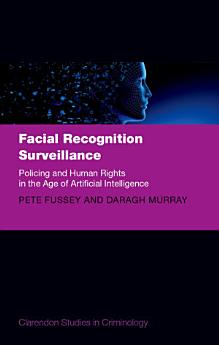Facial Recognition Surveillance: Policing and Human Rights in the Age of Artificial Intelligence
Pete Fussey · Daragh Murray
Jul 2025 · Oxford University Press
E-Book
336
Seiten
family_home
Zulässig
info
reportBewertungen und Rezensionen werden nicht geprüft Weitere Informationen
Über dieses E-Book
Scanning millions of faces each year, facial recognition technology (FRT) has become one of today's fastest growing and most controversial AI-driven surveillance technologies. Based on rare ethnographic access to police FRT deployments, Facial Recognition Surveillance: Policing and Human Rights in the Age of Artificial Intelligence delves into the profound impact of FRT on policing practices, surveillance capabilities, and human rights protections. It reveals how this technology shapes, and is also shaped by, the complex environments in which it is deployed, dramatically reshaping police-citizen interactions. This book exposes the selective scientific and legal narratives that justify the expansion of AI-driven surveillance. It draws on cutting-edge human rights theory to propose a due diligence framework tailored to police use of FRT and introduces the concept of 'compound human rights harm' to capture the multifaceted impact of surveillance. Integrating insights from the sociology of policing, science and technology studies, and human rights scholarship, this book advances a theoretically novel and empirically informed perspective that positions FRT as a socio-technical system capable of altering the fundamental nature of policing.
Autoren-Profil
Pete Fussey is a Professor of Criminology at the University of Southampton and researches the human rights implications of advanced surveillance and other policing technologies. His other published work analyses digital sociology, algorithmic justice, and urban studies. He has authored work laid before the UN General Assembly; co-authored UN human rights standards on police technology at protests; and co-directed the ESRC Human Rights, Big Data and Technology project (2015-2023). Professor Fussey's research has featured on the front pages of The Guardian and Financial Times, and additionally covered by BBC Newsnight, PBS Newshour, The New York Times, Washington Post, BBC Radio 4 and others. Daragh Murray is a Senior Lecturer at Queen Mary University London School of Law, and a Fellow of the Institute of Humanities and Social Sciences. He specialises in international human rights law and the law of armed conflict, with an interest in artificial intelligence and other advanced technologies. He has been awarded a UKRI Future Leaders Fellowship to examine the 'unintended consequences' of artificial intelligence, with an emphasis on understanding the links between surveillance and the processes central to individual's identity development and the evolution of democratic societies. He was previously a member of the UKRI funded Human Rights, Big Data & Technology Project.
Dieses E-Book bewerten
Deine Meinung ist gefragt!
Informationen zum Lesen
Smartphones und Tablets
Nachdem du die Google Play Bücher App für Android und iPad/iPhone installiert hast, wird diese automatisch mit deinem Konto synchronisiert, sodass du auch unterwegs online und offline lesen kannst.
Laptops und Computer
Im Webbrowser auf deinem Computer kannst du dir Hörbucher anhören, die du bei Google Play gekauft hast.
E-Reader und andere Geräte
Wenn du Bücher auf E-Ink-Geräten lesen möchtest, beispielsweise auf einem Kobo eReader, lade eine Datei herunter und übertrage sie auf dein Gerät. Eine ausführliche Anleitung zum Übertragen der Dateien auf unterstützte E-Reader findest du in der Hilfe.





